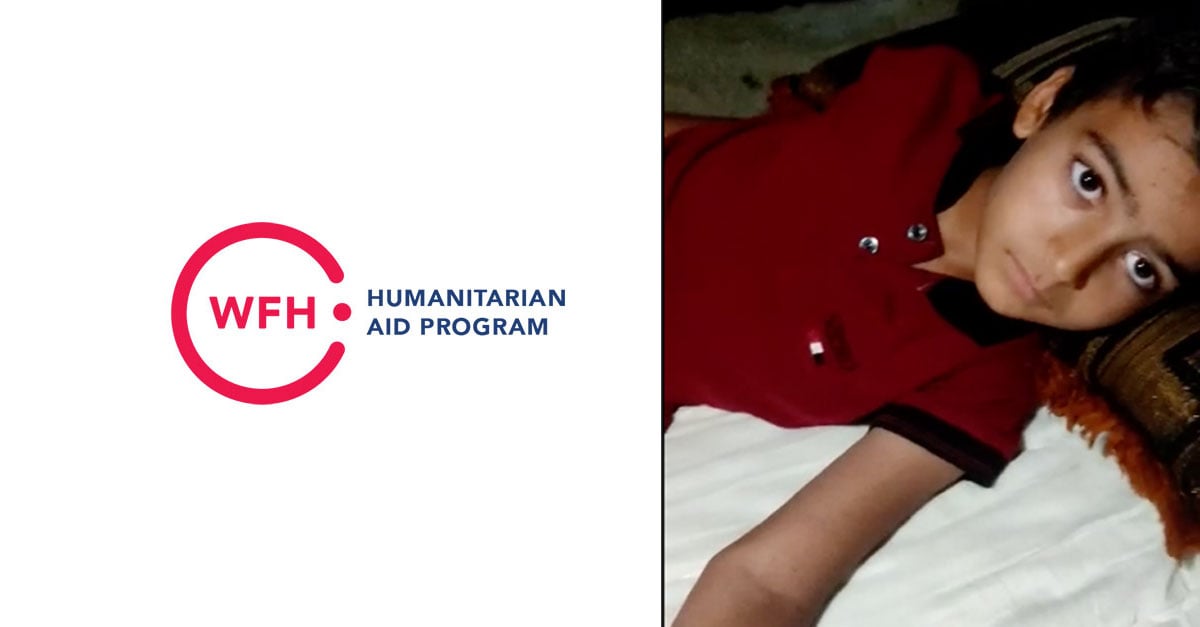Even in these situations, the WFH Humanitarian Aid Program is reaching people thanks to its extensive logistics networks. While creating a path to sustainable care in a refugee camp isn’t realistic, the Program is nevertheless able to support PWBDs so that they can reach the next stage of their life, hopefully in a new country that has a more established healthcare network.
Khoder’s story
In a refugee camp in the South of Lebanon, a family of Syrian refugees is struggling to survive. Adding to their daily challenges is the fact that the three boys—Hussain, Mohammad and Khoder—all have severe hemophilia B. For them, the only source of factor is donations provided by the WFH Humanitarian Aid Program.
Khoder is the youngest, at ten years old. Like his brothers, he has joint problems and extensive bruising. Because of a gap in factor availability, he developed a bleed in his knee which resulted in swelling. He has been in pain for weeks because of it. If left untreated, that kind of swelling will cause permanent joint damage. Fortunately, this time donated factor made it to Khoder before the bleed could progress further. Since it’s challenging to get access to a healthcare worker, his brother administers the factor to him.
The factor isn’t enough to keep future bleeds at bay, but it’s enough to stop his current bleed. In camps like these, the WFH Humanitarian Aid Program donations must be judiciously shared so that every PWBD gets something even if it’s a minimal amount.
To read about Karam—a 14-year-old Syrian orphan with severe Hemophilia B in a refugee camp—please click here.
Over 4.5 million IUs of factor have been donated to Lebanon through the WFH Humanitarian Aid Program so far in 2023. Since 2015, over 16 million IUs of factor have been donated to Lebanon. To find out more about the WFH Humanitarian Program, please click here.
About the WFH Humanitarian Aid Program
The WFH Humanitarian Aid Program improves the lack of access to care and treatment by providing much-needed support for people with inherited bleeding disorders in developing countries. By providing patients with a more predictable and sustainable flow of humanitarian aid donations, the WFH Humanitarian Aid Program makes it possible for patients to receive consistent and reliable access to treatment and care. None of this would be possible without the generous support of Sanofi and Sobi, our Founding Visionary Contributors; Bayer, CSL Behring and Roche, our Visionary Contributors; Grifols, our Leadership Contributor; and Takeda and Japan Blood Products Organization, our Contributors. To learn more about the WFH Humanitarian Aid Program, visit www.treatmentforall.org.













